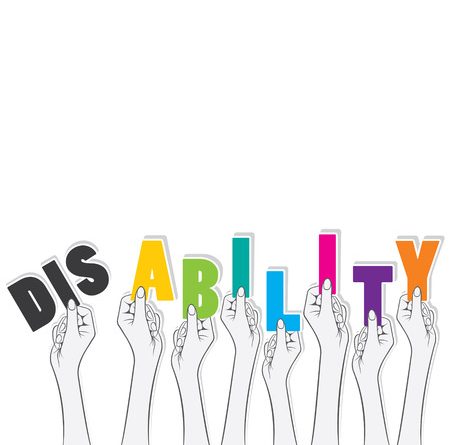Is Dyslexia a disability or a gift?
When I am struggling to do something everyone finds straightforward it’s hard to think of dyslexia as a positive attribute. If I realise I’ve read the same sentence 5 times and still don’t know what it said I’m more likely to curse my brain than praise it. When my self-esteem is taking a battering I’m more likely to think why am I different than wow what a super power I have. Dyslexia and related conditions can undoubtedly make life difficult but can they also be a gift?
To be compared to Richard Branson, Bill Gates, Steve Jobs or Einstein does not help a dyslexic who is struggling to come to terms with their diagnosis. These are truly exceptional individuals and are unlikely to realistic aspirations. It’s like comparing all left-handers to Jimi Hendrix regardless of if they play the guitar.
Can dyslexia be a gift like Ron Davis suggests in his book title? Is, as Malcolm Gladwell claims in his book David and Goliath, dyslexia a desirable difficulty? I think so. With the increasing automation of procedural work (something dyslexics rarely excel in), some of the dyslexic attributes will become increasingly sought out talents.
Before we continue where do you think we might find more dyslexics: in NASA’s rocket science lab, or in a prison?
Dyslexia and dyspraxia as disabilities
The UK Equality Act 2010 explicitly calls out dyslexia and dyspraxia as disabilities. They sit in there with a number of other mentally impacting hidden disabilities such as depression, autistic spectrum disorders and OCD. The act offers two critical protections for disabled people: legal protection from discrimination, and legal rights to reasonable adjustment.
The provisions of the Equality Act provide critical protection for many disabled individuals. However, the label disabled draws focus to what can’t be done. This steals attention from what can be done. Considering dyslexia as a disability means many people do not consider how to harness the many strengths it can bring.
Dyslexia affects people differently and like there are common challenges (reading, writing, memory) there are traits of strengths. These include spatial reasoning, interconnected reasoning (pattern spotting), verbal reasoning particularly in situations of incomplete and contradictory information, big picture thinking, creativity, and empathy. With strengths like that it’s starting to sound less like a disability, isn’t it?
Capitalisation learning and compensation learning
While many dyslexics struggle with procedural learning I think the successful ones excel at either capitalisation learning and compensation learning. Capitalisation learning is where you take a strength and build on it. Compensation learning comes as a result of having to work through and around difficulties.
Compensation learning in action
I am not naturally the most organised person. I have a bit of a scatty mind and I can struggle to keep track of things. Yet for a living, I am a project manager. On first glance, I’m lacking the attributes you might expect in a good project manager. On my side though is a lifetime of compensation learning. To get through school and university I needed to devise numerous systems to ensure I got my work completed on time. Some of these systems scale to keeping track of multi-million-pound projects and programmes.
Olympic gold decathlon athlete Bruce Jenner attributes his success to the tenacity resulting from his dyslexia. This might be survivorship bias in play but successful dyslexics share a strong trait of tenacity. Knock us down and we pick ourselves up and keep going. It’s a learned behaviour we’ve been unknowingly practising since a very young age.
Capitalisation Learning
I subscribe to the notion of dyslexia being caused by a different spacing of the neurones in the brain. This wider spacing can make activities like reading harder to master but is is a tradeoff, not a flaw.
The Dyslexic Advantage book covers the benefits of this different cognitive configuration. Briefly, it creates strength in material (spatial) reasoning, interconnected (big picture) reasoning, narrative reasoning and dynamic reasoning (with incomplete information.
To give one example: a dyslexic who excels in narrative reasoning is likely to have a strong episodic memory. This gives a natural talent for storytelling. Narrative reasoning strengths are why there are, perhaps counter-intuitively, so many dyslexic authors.
The gift of dyslexia
Being able to read quickly, write neatly and recall facts accurately were key business skills for the last century. With the rise of assistive technology such as voice to text and powerful computers (phones) in out pockets, the importance of these attributes is diminishing.
As automation increases and artificial intelligence creeps into the workplace, there will be fewer jobs which are repetitive in nature. Jobs which prize efficiency will be replaced by software.
Increasing importance is going to be placed on the ability to innovate, to be creative, to work with incomplete information and to spot complex patterns. These are tasks for which the dyslexic brain is designed for. In short being dyslexic will soon be a competitive advantage. The Codpast recently blogged on 4 Skills Dyslexics Should Excel at in Future Job Markets and I think that is just the tip of the iceberg.

Where do you find dyslexics?
To provide closure on the NASA or prison question – reportedly both have about 50% dyslexic populations. That’s a really interesting data point against a national average of about 10% both here and in the US.



Pingback: Grit – a book summary – Differently Wired